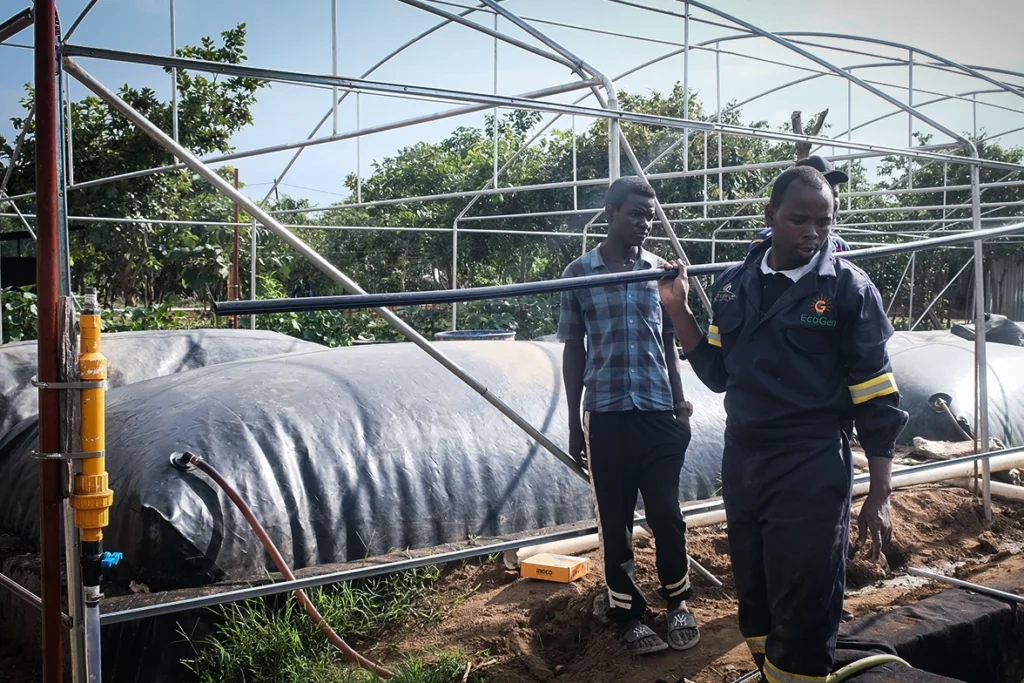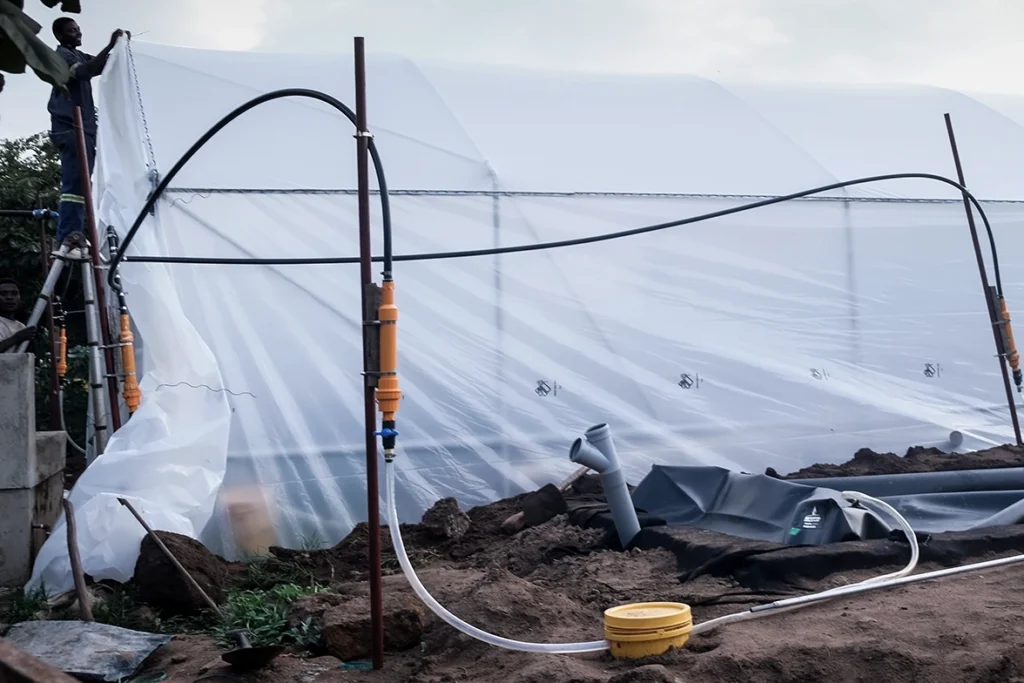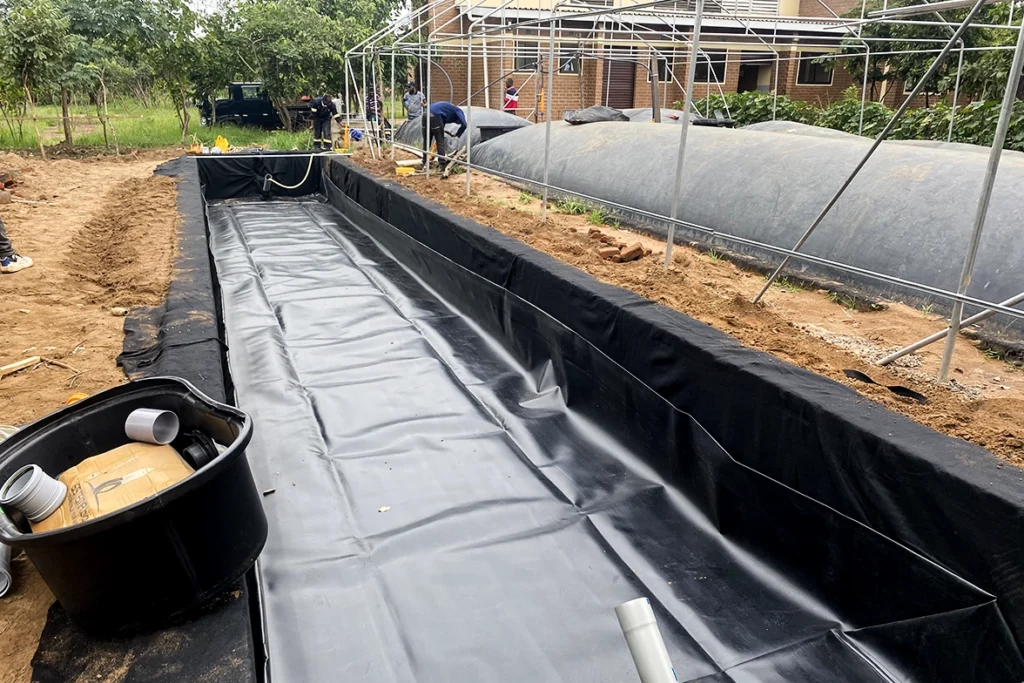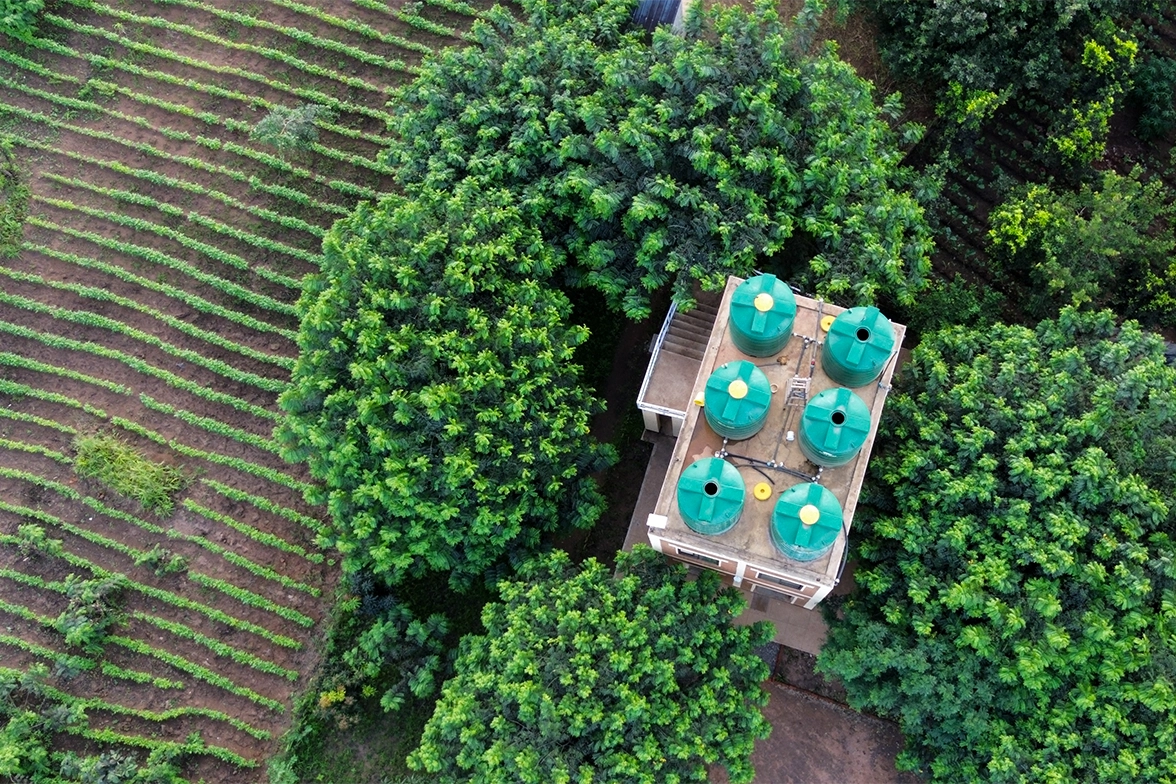Farming for the future: Kuwala’s bold response to economic and environmental challenges.
Kuwala Farm is engaged in an active harvest sampling process, reflecting the team’s commitment to sustainable agricultural practices. They diligently work on nurturing compost, constructing garden beds, and planting crops across over 10 acres of productive land.
As April approaches, the anticipation at Kuwala Farm is palpable. The team eagerly prepares to harvest their potato crop, which promises to be abundant and healthy. This initiative is part of a broader effort to cultivate sustainable crops that can nourish the students and reduce dependence on costly staples like rice, which has to be imported and is subject to inflationary pressures with the devaluation of the Kwacha.
In Malawi, the price of rice has been on the rise. In 2024, the Ministry of Agriculture set the minimum farm gate price for polished rice at 1,000 Malawian Kwacha (MWK) per kilogram. However, market prices can fluctuate, and rice has been fetching higher prices in some areas. For instance, reports indicate that rice sells at an average of 1,500 MWK per kilogram in certain regions. By focusing on potato cultivation, Kuwala Farm aims to provide a nutritious and cost-effective alternative to rice. Potatoes can be grown locally, reducing the need for expensive imports and offering the students a reliable source of sustenance. This strategic shift not only supports the farm’s sustainability goals but also contributes to greater food security for the community. Note: 1,000 Malawian Kwacha is equivalent to about 0.8223 Canadian Dollars, and 1 Canadian Dollar is equivalent to approximately 1,216.07 Malawian Kwacha (28-MAR-2025 rate).
Enhancing our biogas installation at the Campus.
A significant development at the Kuwala farm uses biodigesters, which generate substantial effluent—an organic by-product created during gas production. The farm team has observed remarkable crop growth from applying this natural effluent as fertilizer, aiming to reduce reliance on costly commercial fertilizers. We are in the process of covering the biogestors to regulate the heat. Temperature is critical to function effectively, especially for consistent gas production.
The range of 30°C to 40°C (86°F to 104°F) supports stable digestion and is typically targeted in tropical climates like Malawi’s. This slows digestion if the temperature dips below 20°C, such as at nighttime. Covering the biogestors with a greenhouse-like construction prevents this latent heat from escaping.



From classrooms to crops: Kuwala farm’s bold vision for food security and clean energy in Malawi isn’t just a fad. It’s now necessary to feed our students.
Moreover, Kuwala Farm actively engages in future-oriented initiatives, including establishing an educational institution emphasizing academic excellence, character development, and a lifelong passion for learning. This approach aims to empower students to become self-sufficient and capable of supporting their families and communities through agricultural education and practice.
The context of the current economic challenges in Malawi is also noteworthy. In 2024, the country faced an inflation rate of 34%, with the price of maize—its staple food—rising by 21% in January, as the International Food Policy Research Institute reported. This backdrop underscores the importance of sustainable farming initiatives like those at Kuwala Farm.
An article published by the World Food Program on March 11, 2025, underscores the critical significance of self-sufficiency and food security. It highlights how achieving these goals is essential for sustainable development and resilience against global challenges.
It’s not just Kuwala looking into more sustainable practices to help feed our Campus of almost 300 students, staff, and teachers. Iceland is stepping up with a US$1.5 million contribution to expand the HGSM programme over the next three years. The goal? Healthier kids, stronger local economies, and more innovative sustainability. The funding will help improve food security for students while creating a steady demand for 1,200 smallholder farmers supplying fresh, local food to schools. These farmers will also gain access to marketing, finance, and business management training, setting them up to scale and succeed.
But it’s not just about food. A clean energy pilot will launch in select schools, turning organic waste into biogas for cooking and biofertilizer for school gardens. That means fewer trees cut for firewood, healthier soil, and a smart step toward more sustainable farming.
Sources
For more information, consider downloading the World Health Organization’s “The State of Food Security and Nutrition in the World -2024 Report.” Click the link to download the report.
For more information on: Ministry of Agriculture pricing on gain pricing.
